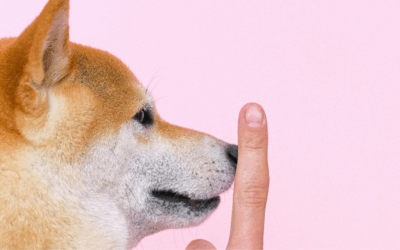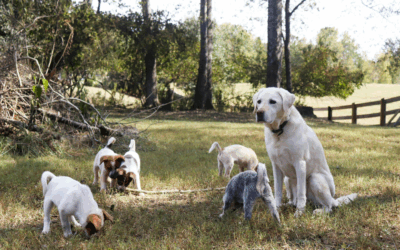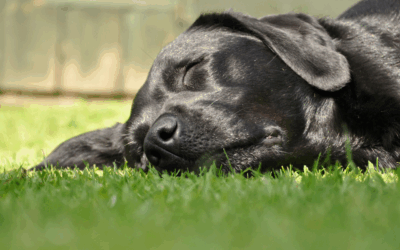Dogs are cherished members of our families, so it can be puzzling—even alarming—for pet parents to discover their furry friend engaging in the less-than-pleasant behavior of eating poop, a habit scientifically known as coprophagia. You may find yourself asking, “Why do dogs eat poop?” and searching for effective ways to stop it for your dog’s health and your peace of mind.
The fact is, poop eating is not as unusual as you might think. Studies suggest that one in six dogs engage in this behavior. While it may seem gross, this behavior has a basis in both natural instincts and potential underlying medical or behavioral causes. This blog dives into why dogs eat poop, the possible health risks, and strategies for stopping your dog from eating poop.
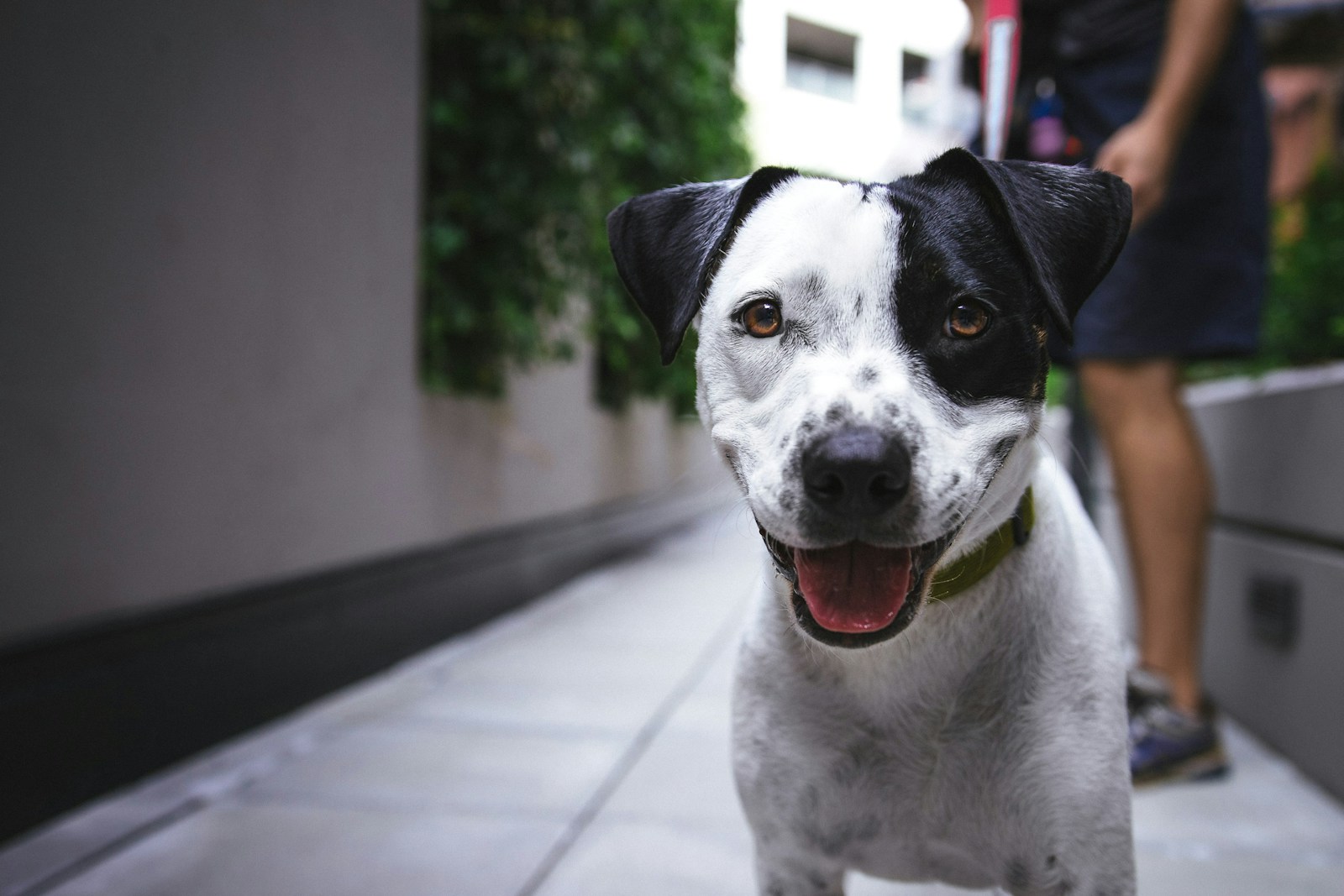
Why Do Dogs Eat Poop?
Dogs eat poop for a variety of reasons, from natural instincts to underlying health and behavioral issues. Here are the primary factors that contribute to this behavior:
A Natural Survival Instinct
Dogs’ poop-eating tendencies may have evolved from their ancestors. Early wild dogs were scavengers, and eating fresh poop sometimes helped them survive. Fresh stools could have contained undigested nutrients that served as a “tasty treat.”
Mother dogs also eat their puppies’ poop to keep the den clean and remove any scent that could attract predators. Puppies often mimic this behavior as they grow and learn from their mothers. For young dogs, this behavior is considered natural and typically diminishes as they age.
Health Issues and Nutritional Deficiencies
For some dogs, eating poop might signal an underlying medical issue. Common causes include:
- Dietary Deficiencies: A lack of proper nutrients in your dog’s diet, such as fiber or Vitamin B, may prompt them to seek alternative sources like poop.
- Digestive Enzyme Issues: Dogs with poor digestion may eat poop as a way to compensate for insufficient nutrients in their food.
- Intestinal Parasites: Parasites in the intestinal tract can steal key nutrients, making your dog crave alternative food sources.
- Underlying Illnesses: Conditions like diabetes, thyroid disorders, or malabsorption can cause increased hunger and unusual eating habits, including coprophagia.
Behavioral Factors
Behavioral reasons also play a big role in poop eating, including:
- Separation Anxiety: Dogs that are left alone for long periods may use poop eating as a way to cope with stress.
- Attention-Seeking: Some dogs engage in this behavior to get a reaction from their owners.
- Potty Training Gone Wrong: If a dog has been harshly punished for accidents in the house, they may eat their poop to “hide the evidence.”
- Greedy Eaters: Dogs that tend to overeat or steal food may also develop a habit of eating poop.
- Obsessive-Compulsive Disorder (OCD): For some dogs, poop eating becomes a compulsive behavior akin to OCD, requiring intervention from a veterinary behaviorist.
Environmental Influences
Dogs are naturally curious about their environment, and puppies especially explore the world using their mouths. Fresh poop from other animals, such as cats’ feces in the litter box, may seem tempting due to added food remnants or unique odors. Horse manure or other animal droppings might also appeal to dogs’ curiosity.
Risks and Dangers of Dogs Eating Poop
Dogs eating poop, also known as coprophagia, can expose them to numerous health risks and potential dangers. While the behavior might stem from various reasons, it’s important to understand the negative consequences associated with it:
Parasites and Worms
Consuming feces can transmit intestinal parasites, such as roundworms, hookworms, or whipworms. These parasites may lead to digestive issues, malnutrition, and serious health complications if left untreated.
Bacterial Infections
Feces often contains harmful bacteria like Salmonella and E. coli, which can cause gastrointestinal distress in dogs. Additionally, these infections can sometimes spread to humans through close contact with the affected dog.
Toxin Exposure
Feces from other dogs or animals may contain traces of harmful drugs, chemicals, or toxins, especially if those animals have been exposed to pesticides or medications. These toxins can have adverse effects on your dog’s health.
Disruption of Normal Gut Health
Eating feces can harm the natural balance of your dog’s gut microbiome. This imbalance can lead to digestive issues, reduced nutrient absorption, and overall poor health.
Secondary Behavioral Issues
Consuming feces can sometimes exacerbate undesirable behaviors in dogs, such as increased scavenging or obsession with eating non-food items, which can pose additional risks.
It’s essential to monitor your dog’s behavior and work towards addressing the root causes of coprophagia to protect their health and well-being. Regular veterinary check-ups and preventative care can help mitigate these risks.

How to Stop Dogs From Eating Poop
Thankfully, there are several effective strategies to stop this unpleasant habit!
Rule Out Medical Issues
The first step is to schedule a visit to your veterinarian. They will assess your dog for anything that might be driving the behavior, such as intestinal parasites, medical issues, or nutritional deficiencies.
Improve Your Dog’s Diet
Ensuring your dog has a balanced, high-quality diet can eliminate dietary deficiencies. Incorporate foods with necessary nutrients, digestive enzymes, and fiber to address potential gaps. Talk to your vet about dietary supplements to provide extra vitamins or digestive support.
Keep the Environment Clean
Minimize opportunities for your dog to eat poop by being vigilant about cleaning up after your pet immediately.
- If the behavior involves the litter box, use a covered box or keep it out of your dog’s reach.
- Supervise your dog during walks or outdoor time to prevent them from eating feces they encounter.
Use Positive Reinforcement
Instead of punishing your dog, reward them for NOT going near poop. For instance, distract them with their favorite toy or treat when you spot potential poop-eating behavior and reward them when they obey your commands to “leave it.
Train with Commands
Teach your dog basic commands like “leave it” or “come” to manage their behavior. Consistency and patience are key when addressing this issue, especially if it’s rooted in habits formed at a young age.
Introduce Deterrents
Some products add a bitter or spicy flavor to dog feces, making it less appealing. “Taste deterrent” supplements, which you can add to your dog’s meals, also make their own poop less enticing.
Reduce Stress and Boredom
Provide plenty of mental and physical stimulation for your dog. Interactive toys, games, and regular exercise can significantly reduce boredom and anxiety-related behaviors like poop eating.
Consult a Veterinary Behaviorist
If your dog continues to eat poop despite all your efforts, consult an expert in veterinary medicine. A veterinary behaviorist can evaluate for compulsive behaviors and provide tailored training or treatment plans.
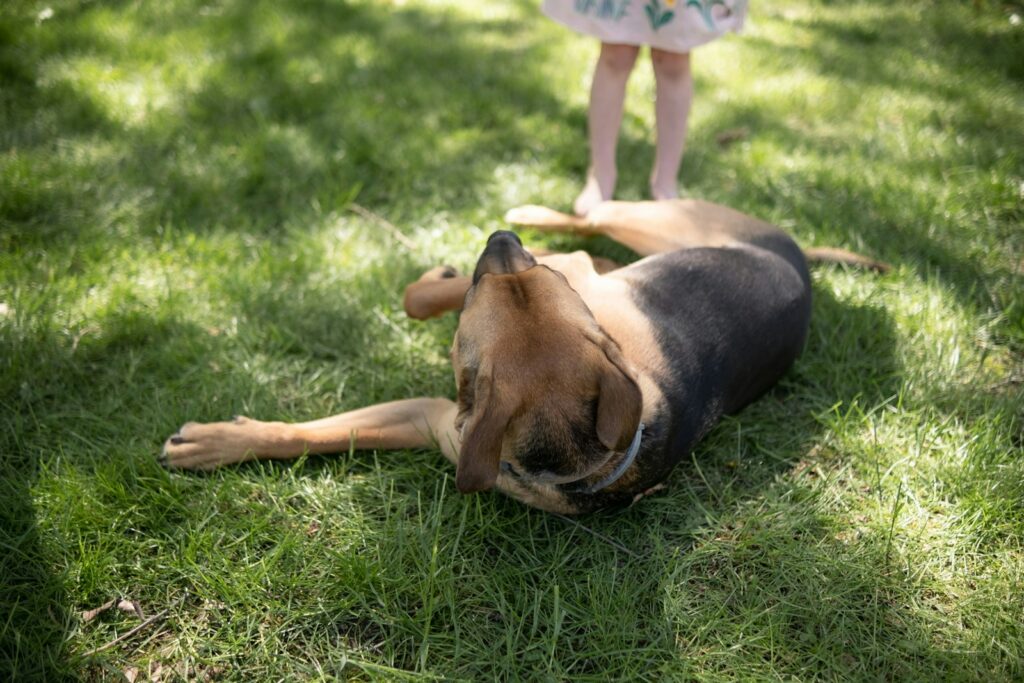
Normal Reasons for Coprophagia (When Not to Worry)
While coprophagia can sometimes raise concerns, there are instances where this behavior is considered normal and not necessarily a cause for alarm:
Puppy Exploration
Puppies often explore the world through taste, and eating feces is a part of the learning process. They are curious about their environment, and this phase usually diminishes as they grow older and learn appropriate behaviors for an adult dog.
Instinctual Cleaning
Mother dogs often consume the feces of their puppies to keep their den clean and free of waste. This is a completely normal maternal instinct and not a sign of a problem. Puppies who observe their mothers may briefly mimic this behavior.
Nutritional Interest
Some dogs may eat feces simply because they detect undigested nutrients in it. This is particularly common in households where other pets, like cats, are present, as cat feces often contain higher protein levels that appeal to dogs.
Scavenging Instinct
Dogs are natural scavengers, and their evolutionary history has reinforced behaviors like investigating or consuming waste. For some dogs, this instinct may reappear in harmless ways, especially in outdoor settings.
Attention-Seeking Behavior
Sometimes dogs eat feces to elicit a reaction from their owners. If this behavior only occurs when the dog feels neglected or craves interaction, it may not pose a health risk and should be redirected through attention and training.
Understanding that some instances of coprophagia are normal behaviors can help alleviate undue worry. However, consistent observation and healthy reinforcement are vital to ensure the behavior remains in check and does not develop into a more concerning issue over time.
When to Seek Help
If your dog is eating poop AND displaying other symptoms such as vomiting, weight loss, lethargy, or unusual changes in appetite, don’t wait to see a vet. These could signal an underlying health issue requiring immediate attention.
Top 6 Products to Discourage Dogs from Eating Poop
If your dog struggles with coprophagia (poop eater), the following products have been specifically designed to help reduce or eliminate this behavior. These solutions come from trusted brands and are recommended for pet owners.
NaturVet Coprophagia Deterrent Plus Breath Aid
This chewable tablet combines natural ingredients that make feces less appealing to dogs while also promoting fresh breath.
Zesty Paws Chew No Poo Bites
These soft chews are enriched with digestive enzymes, probiotics, and ingredients like yucca extract to deter dogs from eating poop and support gut health.
Solid Gold S.E.P. (Stop Eating Poop) Supplement
A powder supplement that’s easy to mix with your dog’s food. It contains ingredients like peppermint to make feces unappealing.
Advance Pet Stop Stool Eating Deterrent Chews
Specially formulated for dogs to discourage stool consumption with a blend of active and natural ingredients for better efficacy.
Four Paws Potty Mouth Coprophagia Treatment
Designed for dogs of all ages, these chewable tablets help stop and prevent stool eating, with easy administration and results over consistent use.
Vet Classics Stop Stool Eating Soft Chews
Veterinarian-formulated supplements that help deter coprophagia while promoting digestive health. The soft chew format makes it easy to give to dogs.
These products, combined with proper training and positive reinforcement, can help address coprophagia so you and your pet can enjoy a healthier, worry-free relationship. Be sure to consult your veterinarian if the behavior persists despite interventions.

Stop by Snouts and Stouts Indoor Dog Park and Bar for a fun-packed day!
Every Dog is Different
For dog lovers, it can be reassuring to know that while poop-eating behavior is unpleasant, it’s often manageable. With the right combination of medical care, training, and environmental adjustments, you can help stop your dog from eating poop and get them back to being a happy, healthy companion.

